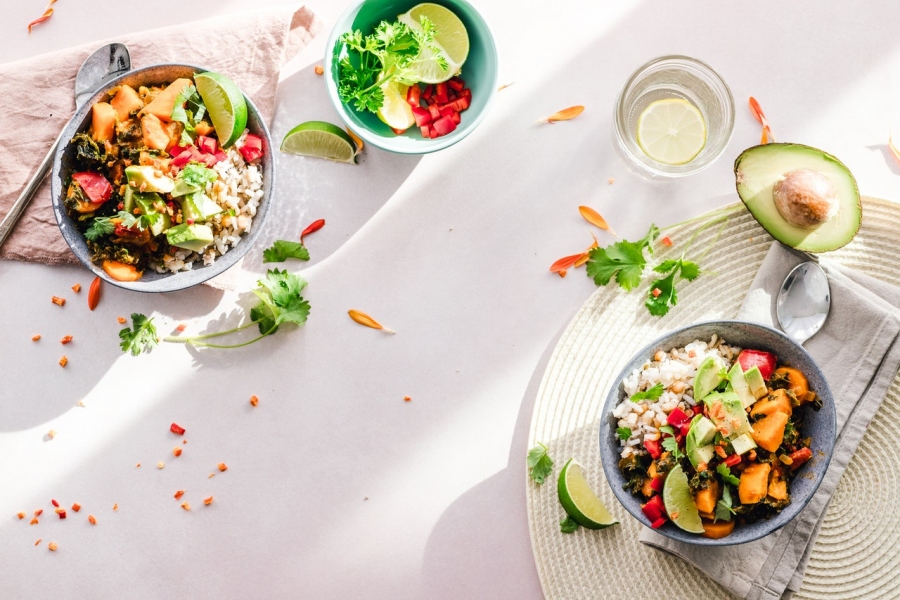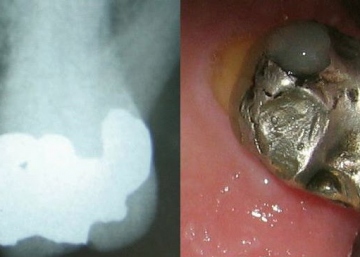How many times have you heard that you only need to hit the gym quite often to build those muscles? No matter how much you do bodybuilding exercises, you’ll always feel like something is missing. What is that? A proper diet!
Even though a great body depends on numerous factors, from genetics, hard work, diet, water intake and sleep, the food you eat can change your life completely. Depending on the type of food you consume, you’ll have less or more energy to do the workout, you’ll be more or less ready to tackle daily challenges. Therefore, eating a proper diet for muscle building process is essential. What are the ingredients you should intake?
1. Eggs
The food you consume after your workout is equally important to the effort you put into the gym. If you want to gain muscles and get ripped, eggs should be a crucial part of your diet. They contain top-quality protein, vitamin B and healthy fats you must include in your diet. Egg contains a lot of amino acids that are important for muscle gain. On top of that, you should consume eggs if you don’t want to run out of energy before or after your workouts.
Did you know that eating three whole legs after lifting weight is great for building muscles? How is that possible? Believe it or not, post-workout shakes aren’t doing your muscles any favors. Therefore, eggs are a better option if your aim is to build lean muscles.
2. Dairy: Milk, Greek yogurt, cottage cheese
Contrary to the popular belief, dairy products are good for you especially if you’re trying to build muscles. They usually contain a mix of high-quality proteins and healthy fats that will help your body grow the muscles faster. Did you know that most dairy products contain fast-digesting and slow-digesting proteins?
What does that mean? Some experts claim that when consuming fast-digesting and slow-digesting proteins combined, you’ll build lean mass easier. On top of that, Greek yogurt and cottage cheese can make an amazing breakfast or tasty snack in the middle of the day! Just make sure to check whether they are high-calorie or not to control the number of calories you’re consuming during the day.
3. Bread
Many people think that bread is horrible for your digestive system. They are partly right. However, if you consume the right kind of bread, you’ll have no issue with unwanted weight gain and other downsides. So, instead of opting for regular white bread, try eating whole grain bread.
Grains are wonderful for your digestive system and help your muscles thrive. However, you should avoid eating too much bread as you’ll leave no space in your stomach for the tasty and healthy food you need for your fitness journey. So, eat whole-grain bread in moderation and don’t worry about what anyone else says!
4. Grains
Besides the bread, there are many other healthy grains you can consume. For an amazing start of the day, make yourself a bowl of low-sugar cereal and your favorite low-fat milk. That should keep you full until lunch, where you’ll consume, preferably, brown rice as a side dish. What else can you eat?
Popcorn is an amazing snack for weight lifters. They keep you full and ready to tackle new obstacles. Similarly, consider eating a fruit salad with quinoa seeds that contains a suitable amount of carbs, protein, fiber, and magnesium. A combination of these minerals, proteins, and carbs should keep you up and about as magnesium is extraordinary for your muscles and nerves. Don’t forget to eat oatmeal from time to time to shake your diet up a little bit.
5. Tofu
Don’t worry vegans, we haven’t forgotten about you! As you probably know, tofu is produced out of soy milk and is often used instead of meat. That doesn’t mean that meat-eaters can’t have it though! When prepared properly, tofu can be made into an interesting meal the entire family will love.
As this ingredient contains calcium, it’s extremely beneficial for your muscles and bones, especially if you’re in training. It goes well with all kinds of salads, pizza, different types of meals and even makes delicious sandwiches! So, vegans, vegetarians, and meat-eaters, try to include tofu into your diet.
6. Seeds
Would you like to burn fat, build muscle and keep your brain fog away? Then you should definitely include seeds in your weekly menu! Whether you decide to eat them on their own, mix them up with a morning smoothie or sprinkle them over your favorite pottage, the taste you’ll get won’t disappoint you! So, what kinds of seeds should be your top priority?
If you’d like the best of both worlds, a great taste and fantastic benefits for the body, eat pumpkin seeds. They are rich in zinc, which helps you lose unwanted fat and produce more testosterone which is crucial for muscle building. On the other hand, chia seeds are full of iron, potassium, magnesium and are low-fat. They are perfect for vegans and vegetarians.
7. Nuts
If it’s the time for a midday snack, try not to reach for a bag of chips or products that contain processed sugars. What can you eat as a snack that won’t spoil your diet? Nuts! There are different types of nuts that are extremely beneficial for your entire body, not just the muscles. So, what kind of nuts should you eat?
Peanuts are amongst the favorites! They contain a lot of calories, healthy fats, and proteins which can help you gain more muscle. Plus, they can taste amazing as peanut butter with jelly. A healthy quick snack! Similarly, don’t avoid almonds. Besides the proteins, they are rich in magnesium, vitamin E, and phosphorus which can help you use the body’s fat during exercise.
8. Mushrooms
Another fantastic food type for vegans, vegetarians, and meat-eaters is mushrooms. Many people don’t like mushrooms for their texture. However, there are many other ways to prepare them to make the texture more bearable. Why are they good for you?
They are rich in vitamin B, potassium, and antioxidants. On top of that, mushrooms can be a delicious substitute for meat. Numerous types of different mushrooms exist. But you do need to be careful not to eat the wrong one! So, buy them only in reliable places and stores.
9. Starchy veggies
There are two types of veggies: starchy and non-starchy. But did you know that both types are extremely good for you and your muscles? Starchy vegetables such as potatoes, corn, peas, and beans can make an amazing meal or a side dish. It all depends on the number of calories you’re trying to take.
Did you know that vegetables fill you up better than any type of junk food? Besides, they don’t create digestion problems. Without veggies, you’re less likely to have long-lasting energy running through your body. In addition to that, they are very beneficial for your heart and overall immune system.
10. Vegetables
All the fresh veggies could be categorized as non-starchy vegetables. Tomatoes, broccoli, spinach, lettuce, cucumber, and zucchini are heaven-sent for your strength, energy, and muscles. It’s not a coincidence a famous cartoon character Popeye ate so much spinach. Have you seen the size of his muscles?!
Most leafy green vegetables are filled with antioxidants that help you lose fat and build muscles. Whether you want to cook them or eat them fresh, in a salad, you’re making the right choice for your body. Believe it or not, all the vitamins and minerals contained in the fresh veggies will do wonders during your muscle-building journey!
11. Fruits
Whether your aim is to gain muscles or not, everyone should include fruit in their diets! Besides being rich in various vitamins, such as vitamin C, they are fantastic antioxidants for your body. Fresh fruit or smoothies are amazing snacks or breakfast for the day. What kind of fruit should you eat?
You can never go wrong with bananas, apples, oranges, berries, grapes, pears and peaches. Once you introduce them to your daily menu, you won’t feel the need to eat processed sugars anymore. On top of that, fruit boost your immune system better than many fake supplements. So, to stay healthy and hit the gym regularly, you should include fruit into your daily intake.
12. Meat
We live in a world where an abundance of different meats exists. You can’t even imagine how many different types of food you can get from those meats. From chicken, over pork and jerky to fish and seafood, you can create an entire meaty buffet!
Try to include fish protein and chicken at least twice per week on your menu. However, you do have to be careful with the way you prepare them. Don’t fry your food. You’ll lose all the healthy proteins, fats, and vitamins by doing so. Try to cook it or roast it for a richer taste and better health.
13. Oils and fats
Many people are scared of the word “fat”. However, there are good and bad fats. Bad fats should be avoided, whereas good fats are an essential part of our diets. Good fats and oils can add a better taste to food and make those healthy meals more bearable. What can you eat?
For example, avocado and avocado oil are extremely healthy for you. They provide you with many nutrients no other ingredient contains. Similarly, olive oil is much healthier than the regular one. So, if you do need to fry something or make a great salad, try to swap regular oil with olive oil.
14. Caffeine
Isn’t caffeine bad for your health? Not, if you take it in moderations. Believe it or not, caffeine can help you maximize your training efficiency and help you endure prolonged training sessions. So, a cup of black coffee during the day won’t hurt you. Quite on the contrary, it will help you have more energy during your workout sessions. What else is caffeine good for?
Besides the energy, caffeine helps you minimize the pain after your workouts. If you think you’ll be sore when your training is done, drink a cup of coffee to minimize the inflammation of your muscles. Keep in mind that most ingredients are good in moderation, so don’t avoid coffee just because someone once told you it’s bad for you!
15. Creatine
Do you want improved strength and power during your exercise? What about improved overall cognition? Then you should definitely add creatine to your diet. What is it for? It’s one of the main sources of energy during strength training and power-type exercises.
Only high-quality creatine provides benefits for the entire body. Besides the numbered benefits, creatine maximizes the glycogen in muscles to help you during prolonged workouts. Additionally, it helps you balance the body temperature during the training. Luckily, it doesn’t really matter when you’re taking creatine as long as you’re sticking to the right dosage, which is usually 3-5 g per day.
16. Whey
If you need to intake additional protein to stimulate your muscles to provide a lean mass, you should definitely opt for a supplement such as whey. It has numerous health benefits besides helping you build muscles. It may help you lower blood pressure and enhances the antioxidant defense of the body. On the other side, if you’re lactose intolerant, whey may cause a series of digestive problems.
Fortunately, there are vegan whey protein powders you can consume. If creatine is necessary, is it safe to take them both? It all depends on what you’re trying to achieve. There are no known side effects of taking whey and creatine at the same time. So, keep your goal in mind and choose what’s best for you.
Conclusion
Even though working out is very important for your muscles, diet plays a huge role in this process. You shouldn’t neglect the food you eat. Whether you work out or not, food is the core of your energy and the main source of proteins you’ll transform into muscles. So, create a healthy diet and add supplements if necessary to help you achieve your goal faster and get a longer-lasting result.




You must be logged in to post a comment.